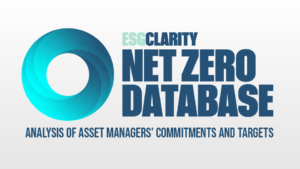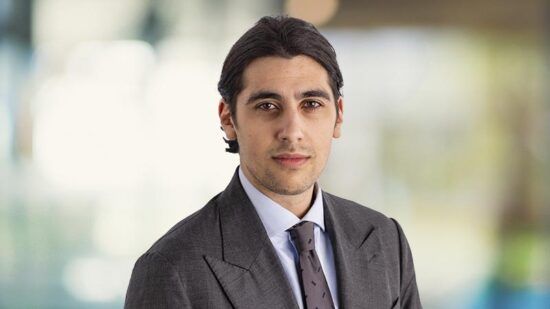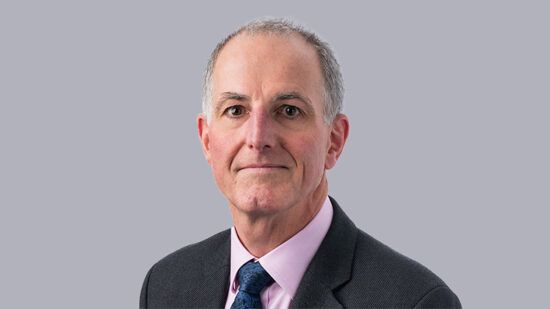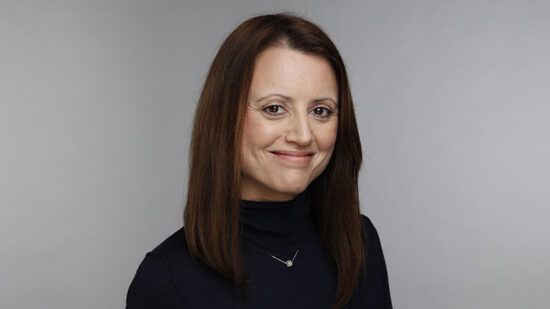As Janus Henderson enters its 90th year, the British-American global asset management firm with some $335bn in assets under management is largely well-known for its equity, fixed income and multi-asset strategies and numerous acquisitions.
But, as Michelle Dunstan realised when she arrived at the firm as chief responsibility officer at the start of 2023, there was much more to the firm that was not being communicated to external stakeholders, particularly around ESG research.
“We have been doing ESG research for years, both within the investment teams and on our central team of subject matter experts. It’s not something that we’ve been tremendously good at sharing with our clients.
“Now we’re starting to show people what we’re doing.”
Over the past year, Dunstan has been getting a handle on what exactly is under the bonnet of the firm’s funds and research platform and figuring out how to efficiently share that message with clients and the industry.
“When I got here there was a lot more going on than I had anticipated.
“We do a lot of research and engagement, but now we’re trying to make that better known. Also, we’re willing to share those insights with people that matter, so our clients and peers in the industry.”
So what exactly did Dunstan find out about the firm?
“The foundation and DNA of this firm is research,” answered Dunstan.
“It’s deep, fundamental research that drives insight. Can we dig deeper? Can we really look at and anticipate what is going to drive stock or bond prices, and how can we get smarter about it than other customers or other asset managers, and then invest behind that?
“And we do the same thing with ESG, trying to identify what are those material ESG factors, how are these going to play out, how are they going to impact cash flows or valuation or cost of capital and how does that inform our decisions?”
Additionally, Dunstan emphasised the way the responsible investment team, specifically the subject matter specialists mentioned above, work with the rest of the portfolio management team on ESG analysis and engagement.
For example, Dunstan said in the responsible investment team there are specialists on modern slavery, diversity and a climate and biodiversity expert based in Denver, home to Janus’ roots.
These partner with the portfolio management team on company analysis, Dunstan explained: “What we want is our investment teams to be able to identify what is material, carry out that first level analysis, [and then] our subject matter experts will partner with them to have those tough conversations on how do I approach the CEO or board executive on compensation, or help me explain to the CFO why addressing carbon emissions – or why not addressing carbon emissions – is a risk.”
This is much more efficient, she said, than an investment team and a central ESG team working separately from each other.
“If you have those divorced from each other you can get into a conflict where the portfolio manager might say ‘my analysts really like it, they love the cash flows, I’m buying it’. And you have a central ESG team saying ‘but it’s bad’. Whereas with that integrated into each step of that investment teams process, they are much more likely to consider [those implications].”
The partnerships come together for investment decision-making process and also prepare the next steps on how to engage.
“We think about two types of engagement; first, engagement for insight – so to understand what a company is doing. The second is engaging for action.”
The latter are “outcome-oriented engagements” where a company can see the benefits of making changes.
“If a company is not doing things in the way that you think is conducive to maintaining long-term cash flows you want them to do something differently. We try to engage with them to say ‘here’s what we want you to do, but also here is why we want you to do it’.
“For example, we prefer to see companies that have more diverse boards, more diverse senior management teams, more diverse employee bases in general. And it’s not just because we want more diversity, it’s because you can look at numerous studies that show more diverse companies outperform.”
Dunstan added Janus Henderson gets good access to management but does participate in collaborative initiatives and, unlike some other US firms that have recently left the initiative, is a member of Climate Action 100+. The firm was also a founding member of Nature Action 100 – biodiversity is a big area of focus for Janus Henderson’s research team this year alongside the circular economy, food, nutrition and responsible artificial intelligence.
Looking ahead, New York-based Dunstan reflected on how the industry as a whole is moving into the next iteration of responsible investment. While investment appetite for sustainable products has waned over the past few years, she said Janus Henderson’s Brighter Future fund range is still seeing “strong secular growth”.
“Our sustainable and our ESG-focused funds are still some of our fastest-growing products, but not to the extent they were a few years ago.”
She said Europe continues to be it fastest growing market in this area – and where they are planning four to five new Brighter Future funds for later this year – but there is also demand from Australia, Canada, Asia Pacific and even the US.
“We’re seeing the market broadening out. More and more end clients, the consumers of tomorrow, want to drive the world to a better place. They are taking a more thoughtful approach. So, [responsible investing] is here to stay.”
Janus Henderson Brighter Future funds have $5.8bn (as at 31 December 2023)
They include the following funds:
- Global Sustainable Equities
- US Sustainable Equities
- International Sustainable Equities
- Responsible Resources
- Net Zero Transition Resources Active ETF
- Sustainable Future Technologies
- Australian Sustainable Credit
- UK Responsible Income
- Global Responsible Managed
Bio:
Michelle Dunstan is chief responsibility officer at Janus Henderson Investors, a position she has held since 2023. In this role, she oversees Janus Henderson’s strategy and initiatives in both corporate responsibility and responsible investing. She leads Janus Henderson’s responsibility team to deliver on clients’ needs, create business value, build long-term partnership and ESG research capabilities with investment and product teams. Prior to joining the firm, Michelle held several roles at AllianceBernstein over 18 years, including portfolio manager, senior research analyst, global head of responsible investing, and most recently as chief responsibility officer from 2021. Michelle began her career as an engagement manager and consultant for Monitor Group (now Monitor Deloitte).
Michelle received a bachelor of commerce degree (Hons) from Queen’s University and an MBA from Harvard Business School, graduating with high distinction as a Baker Scholar. She has 20 years’ financial industry experience.








